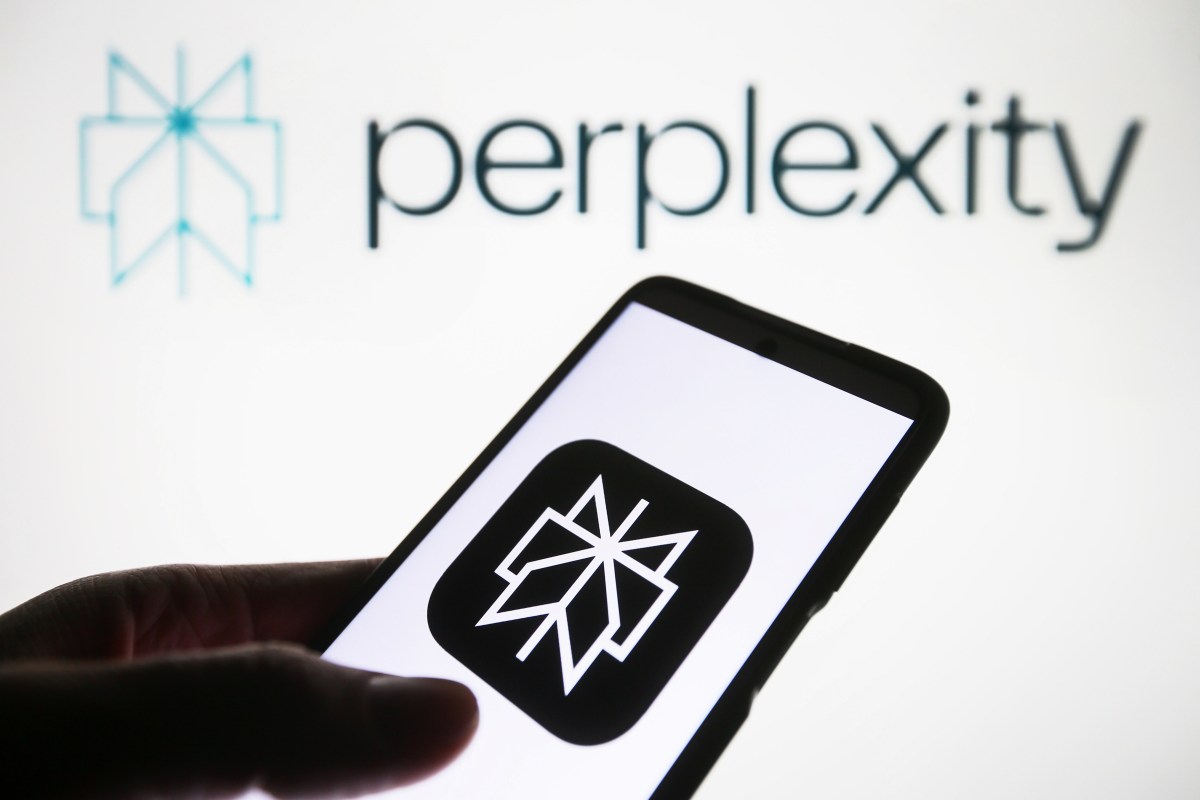Latest Tech News
Perplexity sees India as a shortcut in its race against OpenAI | TechCrunch

While OpenAI has cemented its lead in the U.S., Perplexity is taking a different route — quietly expanding into India to compete in the next phase of AI adoption. The search-focused AI startup is rapidly adding millions of users in the world’s second-largest internet and smartphone market, positioning itself for mass-market scale.
This week, Perplexity partnered with Bharti Airtel, India’s second-largest telecom operator after Reliance Jio, to offer a free 12-month Perplexity Pro subscription — normally worth $200 — to all 360 million Airtel subscribers. Airtel confirmed to TechCrunch that the deal is exclusive, meaning no other telco in the country can offer Perplexity’s services, including free access, to their subscribers.
The Airtel partnership is one of Perplexity’s most significant moves yet in a global expansion strategy that includes partnerships with more than 25 telcos globally, including those recently announced with SoftBank in Japan and SK Telecom in South Korea. It comes down to volume. India, the world’s most populous country, brings a mass market that the San Francisco-based startup will not find in other geographies.
Perplexity is already gaining major traction in the country. In Q2, Perplexity’s downloads in India surged 600% year-over-year to 2.8 million, according to Sensor Tower data shared exclusively with TechCrunch. In comparison, OpenAI’s ChatGPT saw a 587% increase, reaching 46.7 million downloads in the same period.
The growth trend extended to active users as well: Perplexity’s monthly active users (MAUs) in India increased by 640% year-over-year in Q2, while ChatGPT’s MAUs grew by 350%. India was also the largest market by MAUs for Perplexity in the last quarter, per Sensor Tower. However, ChatGPT maintained a significant lead in absolute numbers, with 19.8 million MAUs versus 3.7 million for Perplexity.
Building on earlier partnerships, Perplexity has been working to leverage India’s user base to leapfrog Western markets, where OpenAI dominates paid subscribers. Earlier this year, Perplexity partnered with the Indian fintech giant Paytm to offer access to its AI-powered search through the Paytm app, which has over 500 million downloads and is among the top-three apps on the Indian government’s Unified Payment Interface network, processing over 1.2 billion transactions worth over ₹1,34,000 crores (approximately $15.6 billion).
Perplexity CEO Aravind Srinivas has also taken direct steps to expand in India. In January, he announced plans to hire an Indian executive in the country, which he later put on hold after receiving an “overwhelming” response. He further announced a $1 million investment and a commitment of five hours a week of his time to a group building AI in India.
Techcrunch event
San Francisco
|
October 27-29, 2025

The startup has also internally discussed offering its AI search engine to Indian students to grow its reach, sources told TechCrunch.
One reason Perplexity views India as a key growth market is the relatively limited number of local AI startups, particularly in the AI search space. At the same time, the country has a large and active base of tech-savvy users — a fact that has even prompted Perplexity’s archrival, Google, to launch AI-powered search features like AI Mode and AI Overviews in India ahead of many other markets.
Monetizing that large user base remains a challenge. Perplexity still lags far behind ChatGPT globally in terms of revenue, even as both offer the same $20-per-month starting price. In Q2, ChatGPT’s in-app purchase revenue worldwide surged 731% year-over-year to $773 million, while Perplexity saw a 300% increase, reaching $8 million, per Sensor Tower.

The revenue challenge is particularly acute in India, where consumers are notoriously price-sensitive. Still, there are promising signs. ChatGPT saw an 800% year-over-year increase in in-app purchases to $9 million in the country in Q2. Perplexity has not generated any notable in-app revenue from India, but the startup has room to expand its paid subscriber base through India. Deals like the one with Airtel could help Perplexity effectively increase its subscriber base, at least in the short term.
Strategic partnerships in markets like India could help Perplexity catch the eye of investors who value user growth and geographic diversification. But to turn that attention into long-term backing, the startup will need to show that it can convert its expanding user base into revenue.
Srinivas did not respond to requests for comment.
Latest Tech News
ICE Is Getting Unprecedented Access to Medicaid Data

Immigration and Customs Enforcement officials are getting access to the personal data of nearly 80 million people on Medicaid in order to acquire “information concerning the identification and location of aliens in the United States,” according to an information exchange agreement viewed by WIRED.
The agreement, which is titled “Information Exchange Agreement Between the Centers for Medicare and Medicaid Services and the Department of Homeland Security (DHS) for Disclosure of Identity and Location Information of Aliens,” was signed by CMS officials on Tuesday and first reported by AP News.
Per the agreement, ICE officials will get login credentials for a Centers for Medicare and Medicaid Services (CMS) database containing sensitive medical information, including detailed records about diagnoses and procedures. Language in the agreement says it will allow ICE to access personal information such as home addresses, phone numbers, IP addresses, banking data, and social security numbers. (Later on in the agreement, what ICE is allowed to access is defined differently, specifying just “Medicaid recipients” and their sex, ethnicity, and race but forgoing any mention of IP or banking data.) The agreement is set to last two months. While the document is dated July 9, it is only effective starting when both parties sign it, which would indicate a 60-day span from July 15 to September 15.
The move comes as President Donald Trump’s administration has continued to expand its crackdown on immigration. The administration aims to deport 3,000 people per day—four times as many as were deported in the fiscal year of 2024, according to ICE. Its plans to do so seemingly involves vacuuming up data from across the government. WIRED previously reported that the so-called Department of Government Efficiency (DOGE) and DHS were working on a master database, pulling in data from across DHS and other agencies, in order to surveil and deport immigrants.
Medicaid, state and federally government-funded health care coverage for the country’s poorest, is largely available only to some non-citizens, including refugees and asylum seekers, survivors of human trafficking, and permanent residents. Some states, like New York, provide Medicaid coverage for children and pregnant people, regardless of their immigration status. States report their Medicaid expenditures and data to the federal government, which reimburses them for some of the costs.
“This was never even considered during my five years at DHS working on immigration enforcement,” says John Sandweg, the acting director of ICE during President Barack Obama’s administration. “You want to be careful of a possible chilling effect where people who might apply for benefits and be eligible for benefits—or who seek emergency medical care—won’t do so because they’re worried the information they provide at the hospital could make them a target for immigration action.”
This isn’t the concern of the administration now, spokespeople tell WIRED. “Under the leadership of Dr. [Mehmet] Oz, CMS is aggressively cracking down on states that may be misusing federal Medicaid funds to subsidize care for illegal immigrants,” Andrew Nixon, the director of communications at the Department of Health and Human Services (HHS), tells WIRED. “This oversight effort—supported by lawful interagency data sharing with DHS—is focused on identifying waste, fraud, and systemic abuse. We are not only protecting taxpayer dollars—we are restoring credibility to one of America’s most vital programs. The American people deserve accountability. HHS is delivering it.”

 Fintech1 week ago
Fintech1 week agoOpenAI and UK Government Partner on AI Infrastructure and Deployment

 Latest Tech News2 weeks ago
Latest Tech News2 weeks agoThe tech that the US Post Office gave us

 Cyber Security1 week ago
Cyber Security1 week agoMicrosoft Fix Targets Attacks on SharePoint Zero-Day – Krebs on Security

 Latest Tech News1 week ago
Latest Tech News1 week agoTrump wanted to break up Nvidia — but then its CEO won him over

 Artificial Intelligence2 weeks ago
Artificial Intelligence2 weeks agoApple loses key AI leader to Meta

 Cyber Security1 week ago
Cyber Security1 week agoPhishers Target Aviation Execs to Scam Customers – Krebs on Security

 Latest Tech News6 days ago
Latest Tech News6 days agoGPD’s monster Strix Halo handheld requires a battery ‘backpack’ or a 180W charger

 Artificial Intelligence1 week ago
Artificial Intelligence1 week agoWhy Apple is playing it slow with AI

















